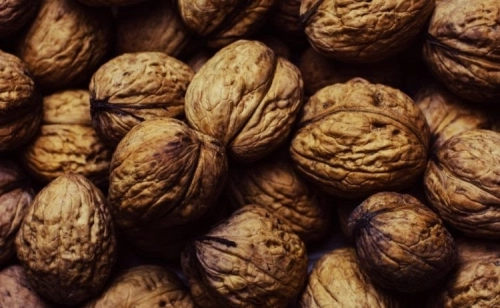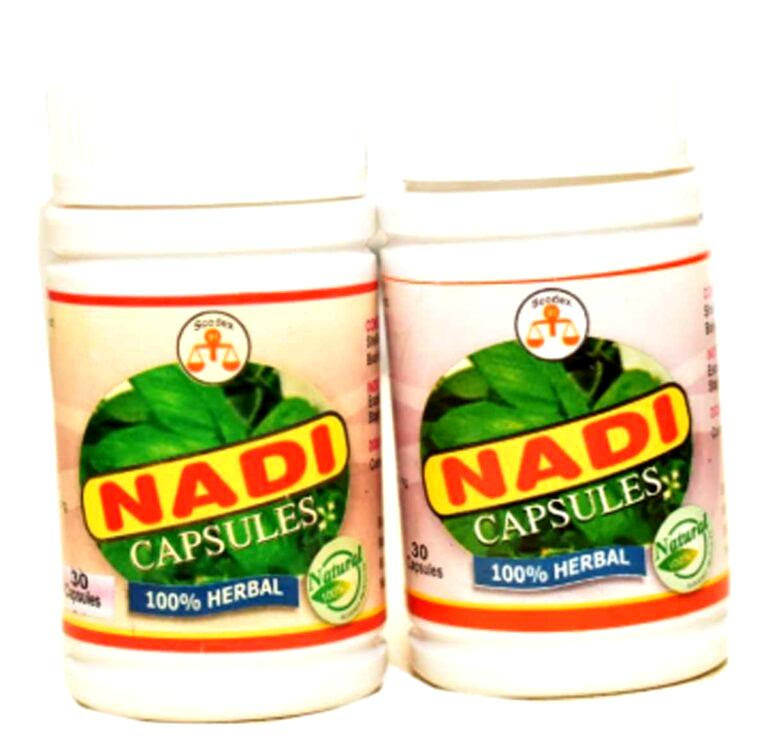profile/3188IMG_20220210_134710.jpg.webp
Bunwo

NUTRIENTS AND POTENTIAL BENEFITS OF WALNUTS: HOW Do They CONTRIBUTE To Your HEALTH?
~2.2 mins read
NUTRIENTS AND POTENTIAL BENEFITS OF WALNUTS: HOW do they CONTRIBUTE to your HEALTH?
A tasty and filling mid-morning snack that you can also add to salads, cereals and soups, walnuts are among the most popular nuts in America. These brain-shaped seeds are also known for their nutrient contents. What are these, and how do they contribute to your health?
The following text is based on information from Harvard Medical School, the British Heart Foundation and other trusted sources. However, it is meant for general purposes only, and does not constitute any form or nutrition advice. Do not rely on it as a substitute for actual medical guidance. Talk to your doctor or registered dietitian to address any dietary needs or concerns. Keep in mind that the best way to stay healthy is to follow a balanced diet that allows you to get all the nutrients you need from a wide range of food sources in the right proportions, while allowing for some flexibility.
WALNUTS NUTRIENTS
WALNUTS are good sources of fat — mostly poly-unsaturated fat—, and include minerals like potassium, phosphorus, magnesium and calcium.
Nuts are high in calories because of their fat content. In this case, however, that can be a good thing. Fat present in nuts is unsaturated, which is considered to be beneficial because it may help regulate cholesterol levels and alleviate inflammation, according to Harvard’s School of Public Health. Walnuts contain omega-3 fatty acids — specifically, alpha-linolenic acid, or ALA — not exactly the same acids as those found in oily fish but a valid vegetarian alternative, experts note. Omega-3 acids are also considered to be beneficial to your heart health and lower your risk of heart disease. In 2013 a study published in The Journal of Nutrition found that consumption of walnuts could reduce the risk of cardiovascular disease.
Walnuts are also a natural source of L-Tryptophan, an essential amino acid that can be converted into serotonin. Serotonin is a hormone that may affect mood and sleep, which is why many people turn to supplements and foods rich in tryptophan to fight insomnia, tiredness or depression. However, this link is still being researched, so the best proven way to use nutrition as a “mood booster” remains being a healthy diet coupled with physical exercise.
Another reason walnuts may be beneficial to your health is related to a high amount of antioxidant substances. Vitamin E, melatonin and chemical compounds called polyphenols. Antioxidants substances protect your cells and tissues from damage caused by harmful agents called free radicals, found in sunlight or cigarette smoke.
It is important to note that none of these benefits will offset the effects of any unhealthy foods you may eat regularly, as general consumption patterns mean that you won’t be getting more than a handful of these nuts each day. At any rate, no single food can make up for the lack of a healthy balanced diet, so it’s best to see walnuts as a healthy complement you can include in your meals or take as a snack in the context of an overall healthful diet.
profile/3188IMG_20220210_134710.jpg.webp
Bunwo

New Solution That Eliminates Staph Aureus, Gonorrhea, STD, Syphilis And Other Infections In Few Weeks!
~8.4 mins read
Specialists and other clinical establishments, have cautioned that simple latrine contaminations, while perhaps not appropriately treated can cause staphylococcus, pelvic fiery illness (PID), which is one of the significant offender liable for barrenness.

To exacerbate it, staphylococcus, STDs and other urinary plot diseases accompanies agonizing manifestations, for example,
twisted development in the body
tingling of private part
release at the tip of the penis
vaginal release
consuming sensation in the body
incessant pee
In the event that you are encountering any of these genuine diseases, you are in good company. My better half and I experienced comparative issues for around 3 years. We tried positive to staphylococcus aureus.
So we visited a few clinics, attempted costly anti-microbials and utilized loads of items purchased from systems administration organizations to make sure we could dispose of this staph…
Yet, unfortunately, the difficult contamination stayed in our
body framework for a considerable length of time!
Around then, the disease impacted my richness, annihilated our invulnerable framework and caused us to experience agonizing indications.
After a few preliminary and blunders, I kept looking for a long-lasting fix until I interacted with a bygone era companion, who was a wellbeing master that has now moved to Canada.
She suggested a NAFDAC Approved home grown treatment that totally fixes Staphylococcus, urinary parcel contaminations, and different STDs like Gonorrhea, Syphillis and so on
My guidance for you is basic, here are the 3 most compelling things I did to at long last dispose of this obstinate bacterial sickness:
Quit utilizing anti-microbials: Most of the anti-toxins drugs sold in drug store stores are presently ineffectual to get staph due self-medicine rehearses. Another explanation is that staphylococcus disease is currently impervious to the majority of these anti-infection agents. Thus, assuming my recommendation is quit squandering cash on anti-toxins.
Rather than anti-microbials, bunches of Nigerian people affirm that this home grown cure works successfully to treat staphylococcus diseases in couple of long stretches of utilizing it.
Eat these food sources like garlic, lemon, ginger, and honey that are commonly known to battle diseases, they are regular enemy of microbial drugs, and functions admirably for supporting safe framework.
3. Take home grown drugs that help flush off diseases from your body framework.
In all honesty, taking Antibiotics and infusion can smother manifestations of bacterial sickness, the arrangement is you need to take home grown meds that will flush those microscopic organisms from your circulation system.
Yet, the issue is, this moment, there are loads of phony and incapable home grown medications out there presented uniquely to trick survivor of their cash.
Furthermore I want to believe that you don't lose your wellbeing and cash as I supported then difficult loads of them.
That is the reason, one of the natural medicines that I suggest which assisted my family and I with relieving staphylococcus and other medication safe diseases is NAFDAC Approved and guaranteed.
As at now, heaps of nigerian people have affirmed that the natural cure is exceptionally powerful, totally fixes bacterial sickness and kills difficult side effects inside couple of weeks.
Heaps of Nigerian couples are now going wild over with regards to this natural cure, and they have sent in tributes concerning how it totally fixes staphylococcus aureus, syphilis, gonorrhea, sexually transmitted disease, takes out agonizing side effects, help resistant framework and detox your body off hurtful poisons inside couple of long stretches of utilizing it.
Now, let me acquaint you with the Herbal Treatment Solution that worked for me, and assisted me with totally relieving diseases with practically no aftereffects by any means…
"NADI HERBAL CAPSULES"
Powerful Natural Herbal Treatment to Completely Flush off Drug-safe Staphylococcus Infection, Sexually Transmitted Diseases, Urinary Tract Infections, Toilet Infections From Your Body System … Without Any Possible Comeback Ever Again!
"100 percent Natural HERBAL REMEDY for Staph Infection, STD and UTI"

The NADI Capsules have been demonstrated to help battle and flush off drug-safe diseases like staphylococcus, syphilis, gonorrhea, herpes, Chlamydia, trichomoniasis, and other latrine contaminations and so forth
It's simply natural, NAFDAC Approved and guaranteed, and it has no incidental effects on you.
All kinds of people can involve it for natural treatment of contaminations and difficult medication safe sicknesses. To be taken 2 containers morning before breakfast, and 2 cases in the evening before supper.
NADI Capsules contains a strong fixing and incredibly successful for the treatment of physically sent contaminations and will assist with supporting your invulnerable framework to battle these anti-microbial safe contaminations and venereal illnesses.
You never again need to bear the agonies of the manifestations of these difficult diseases like release or trickle from the vaginal or penis, consuming sensation while peeing, regular peeing, and tingling on the private part.
NADI Capsules have a solid effect in your body safe framework to help flush off these diseases… with practically no rebound!
One of the primary fixings that the NADI Capsules contains is a strong spice known as "Adansonia digitata" that can be tracked down just in dry, hot savannahs of Sub-Saharan Africa.
One of the most notable impacts of this strong spice has to do with battling contaminations/sicknesses and forestalling it spread.
When you begin utilizing this enemy of disease home grown treatment, you will ready to clean up difficult, safe contaminations and shut down the manifestations in your body framework.
You would see with your own eyes how far you have gone in assisting yourself with disposing of bacterial sickness, STDs and urinary parcel contaminations with no secondary effects by any means.
Yet, don't trust me, Below are genuine tributes we have gotten from individuals who utilized this NADI Capsules Anti-Infection Solution and what they are talking about with regards to it…
I got the nadi containers from your store and I'm appreciative to say it truly worked for my better half to clean up his obstinate contaminations.
we've involved different anti-toxins for quite a while now
to treat it yet the manifestations made want more.
until a companion suggested d nadi containers for us,this gets my most noteworthy proposal n I will send a greater amount of my companions down to your office
Mrs. Edith - Maitama, Abuja
-----
my better half and I request for your nadi home grown containers, as far as possible from katsina-ala lga in benue stae, the total pack supply, and we are blissful with regards to the outcomes we got.
After our last test, we were cleared, so I chose to tell you that this item did well for us. I have prescribed it to our PCP so he can perceive his different patients that are encountering comparable circumstances.
am so happy to come accross your item, in the wake of expenditure intensely on this disease with no outcome. Much obliged such a lot of sir
Thus, there are only 157 containers remaining!
The counter disease arrangement is fanning out like quickly… and request is weighty to such an extent that the vast majority of the stocks are running out quick.
At the present time, a great many individuals will be seeing this site, that implies the accessible stocks are incredibly restricted. I can't guarantee you that you will actually want to get it at a similar rebate cost assuming you hesitate.
Along these lines, feel free to submit your request now…
Furthermore assuming you feel free to get it now, you will appreciate…
=> the rebate basic cost
=> 100 percent FREE Shipping to each state in Nigeria
=> Installment at the mark of conveyance (or at your DOORSTEP)
This implies you will pay for the items just when it has been brought down to you up close and personal by our messenger organization or conveyance man.
Here is a breakdown of the cost (contingent upon the choice you're requesting for)…
NADI MINI PACKAGE2 bottles (60 containers)
Rebate PRICE = N18,000
================
NADI COMPLETE PACKAGE4 bottles (120 containers)
Rebate PRICE = N29,000(plus extraordinary reward)
Indeed, at this reasonable rebate value, you can bid farewell to diseases, totally fix yourself of staph aureus, STDs and UTI, support fruitfulness and begin carrying on with a solid life.
This is The way to Order for Your NADI CAPSULES Today at the Special Discount Price
Contingent upon the choice that you are requesting for…
*Assuming you are requesting for "Little PACKAGE"… demonstrate the code "NADI MINI PACKAGE" in your instant message…
*Assuming you are requesting for "COMPLETE PACKAGE"… demonstrate it "NADI COMPLETE PACKAGE" in your instant message…
NADI MINI PACKAGE - N18,000
NADI COMPLETE PACKAGE + chiffon cleaning agent - N29,000
This is what to ship off us…
Text (the choice you are requesting for) with the accompanying data underneath…
that is, NADI finished bundle or smaller than usual bundle
1. Your Full Name
2. Your Phone Number
3. Conveyance Address (home or office address)
Send This Information as an instant message to 07087843703
Kindly Note: Your conveyance address should incorporate (your road name, town, nearby govt and state). Itemized Enough to make it recognizable by our messenger conveyance man that will come around to convey to you.
You will get a SMS and Call from us inside 24 hours to affirm your Order Before we Parcel It Across to You.
NOTICE: Go Ahead and Order the Complete Package Supplyand Get Instant Access to a FREE BONUS
This is the way to get it: When you request for COMPLETE PACKAGE supplyof the NADI Anti-Infection Capsules at N29,000… you will getyour own free reward of the CHIFON CLEANSER for helping insusceptible framework.

Chifon Cleanser Bitters helps sanitizes your framework and leaves you solid. It stimulates the body and keep you light. Eliminates destructive poisons from the body framework. It additionally advances richness, breath processing and works with mending.
Clears urinary lot and advance energy.
Thus, go on, request now and begin utilizing the natural treatment to dispose of staphylococcus, sexual communicated sicknesses and urinary plot diseases, and begin carrying on with a solid life.
Best part is, there's positively no gamble on your part.
This is what I mean: You don't need to pay first before you get this item. We have installment on conveyance choice for you get the things.
Advertisement

Link socials
Matches
Loading...
